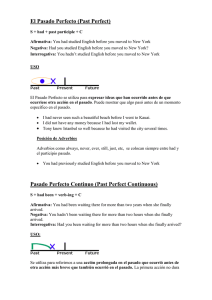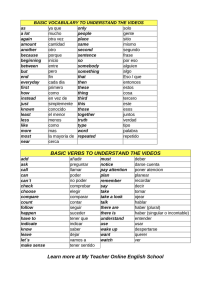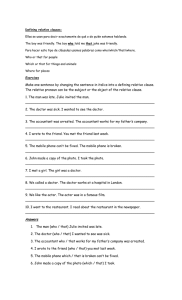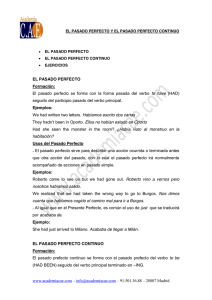El Pasado Perfecto (Past Perfect)
Anuncio
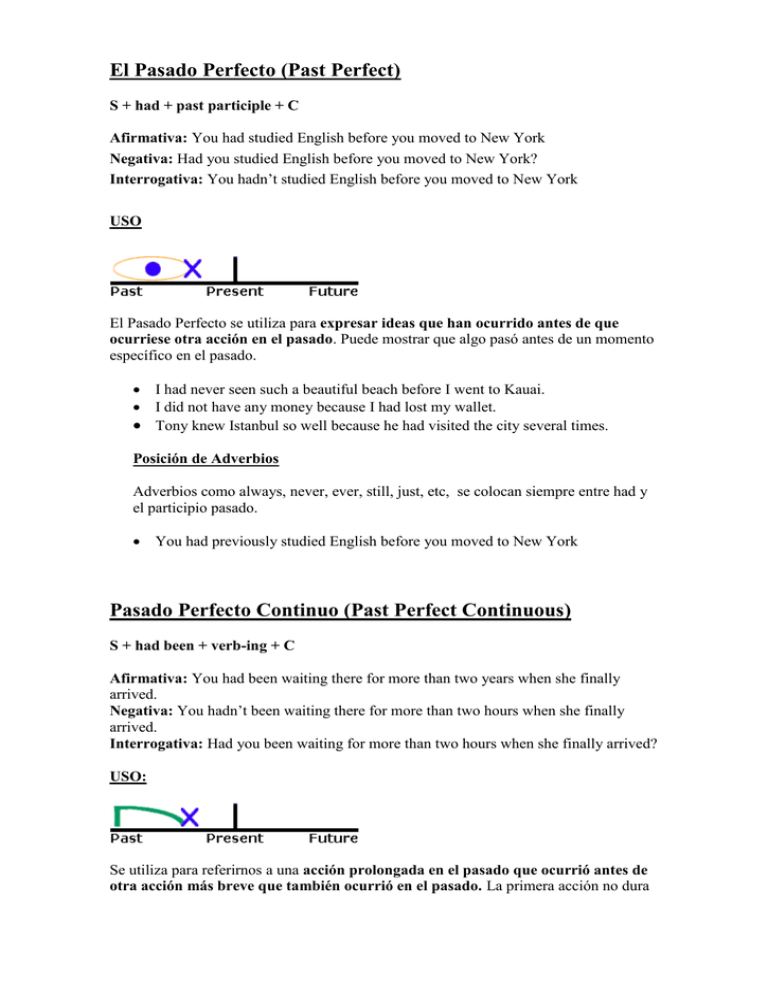
El Pasado Perfecto (Past Perfect) S + had + past participle + C Afirmativa: You had studied English before you moved to New York Negativa: Had you studied English before you moved to New York? Interrogativa: You hadn’t studied English before you moved to New York USO El Pasado Perfecto se utiliza para expresar ideas que han ocurrido antes de que ocurriese otra acción en el pasado. Puede mostrar que algo pasó antes de un momento específico en el pasado. I had never seen such a beautiful beach before I went to Kauai. I did not have any money because I had lost my wallet. Tony knew Istanbul so well because he had visited the city several times. Posición de Adverbios Adverbios como always, never, ever, still, just, etc, se colocan siempre entre had y el participio pasado. You had previously studied English before you moved to New York Pasado Perfecto Continuo (Past Perfect Continuous) S + had been + verb-ing + C Afirmativa: You had been waiting there for more than two years when she finally arrived. Negativa: You hadn’t been waiting there for more than two hours when she finally arrived. Interrogativa: Had you been waiting for more than two hours when she finally arrived? USO: Se utiliza para referirnos a una acción prolongada en el pasado que ocurrió antes de otra acción más breve que también ocurrió en el pasado. La primera acción no dura hasta el momento en el que se está hablando sino que para en el momento en el que ocurre la segunda. They had been talking for over an hour before Tony arrived. She had been working at that company for three years when it went out of business How long had you been waiting to get on the bus? Posición de expresiones de Tiempo Expresiones de tiempo como for hours, since, all morning, when, until, before, etc, se colocan como en los ejemplos: You had only been waiting there for a few minutes when she arrived. El Futuro Perfecto (Future Perfect) S+ Will have + participio pasado + C You will have perfected your English by the time you come back from the U.S. Will you have perfected your English by the time you come back from the U.S.? You will not have perfected your English by the time you come back from the U.S. USO El future Perfecto expresa la idea de que algo ocurrirá en el futuro antes de otra acción futura. Puede que algo ocurra antes de un period de tiempo específico en el future. By the time he gets home, she will have cleaned the entire house. I won’t have finished this test by 3 o'clock. Will she have learned enough Chinese to communicate before she moves to Beijing? Localización de Adverbios Adverbios como always, only, never, ever, still, just, etc se colocan como en el ejemplo: You will only have learned a few words.
